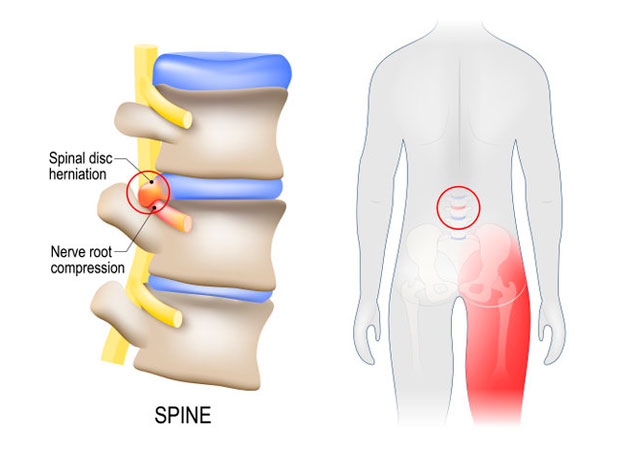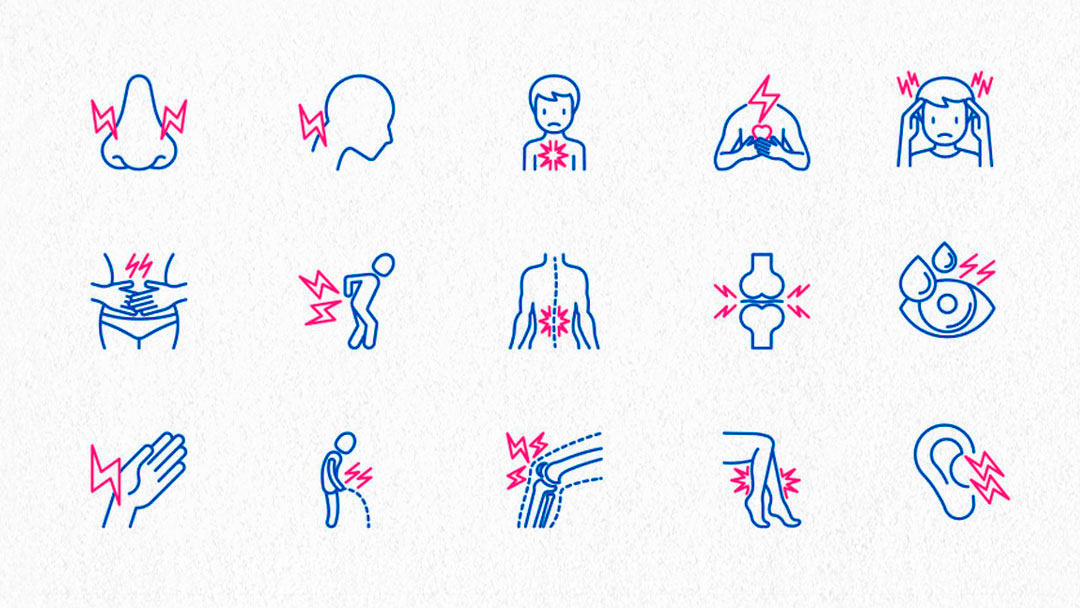The sciatic nerve runs along your lower back to your feet. When it experiences pressure or irritation, you get sciatic pain. What are treatment options for sciatica?
Sciatic pain – commonly referred to as sciatica – can be highly unpleasant and last for weeks or in some cases months. It can appear as pain and weakness anywhere from your feet, up to your lower back.
What does sciatica feel like?
It is often described as stabbing, burning or shooting pain. Sciatica pain symptoms can also be accompanied by tingling, numbness and weakness in the lower half of your body.
It can be a constant problem, or pain that worsens when you sneeze, cough or move about for example.
What causes sciatica pain?
Your sciatic nerve has become inflamed and irritated. This could be due to injury, your body weight, or prolonged pressure from the way you do a repetitive task. For example, parents can get sciatic pain from carrying a young child on one hip, or regularly twisting as they lift them from a cot. Often sciatic pain can be related to a slipped disc in the spine or from tight muscles in the lower back or buttocks.

Diagnosis and sciatica treatments
Diagnosis of sciatica can often be made clinically through careful examination. Sometimes an MRI scan can be helpful in confirming the findings.
Once your GP has found the cause of your back, leg and foot pain – and issues with your sciatic nerve – there are ways you can get sciatica pain relief.
This includes medications recommended for chronic pain management and simple ways to relieve sciatic pain such as heat pads.
They can also give you advice on sciatica and sleep. It can be difficult to get comfortable in bed, but there are ways to use pillows and sleep positions that take pressure off your sciatic nerve.
Things that make sciatica worse also include sitting down for long periods. Your GP can give you sciatica exercises that help, such as walking, and will advise you on normal activities you can do when you have sciatica.
In severe cases your GP may want to refer you to a back specialist for consideration of epidural injections to relieve pain or even intervertebral disc surgery.
Can sciatic pain be a serious health issue?
You must seek urgent medical help if the pain and numbness become severe, and in both legs, or moves up to your hip area. Or, if you have difficulties when going to the toilet.
Otherwise, the multilingual private GPs at our London clinic can provide a diagnosis and help with sciatic pain.



